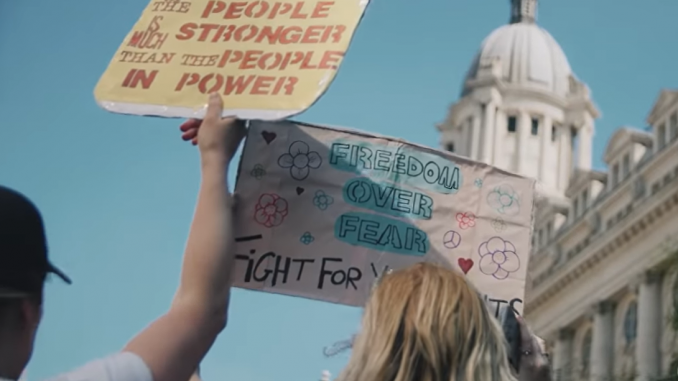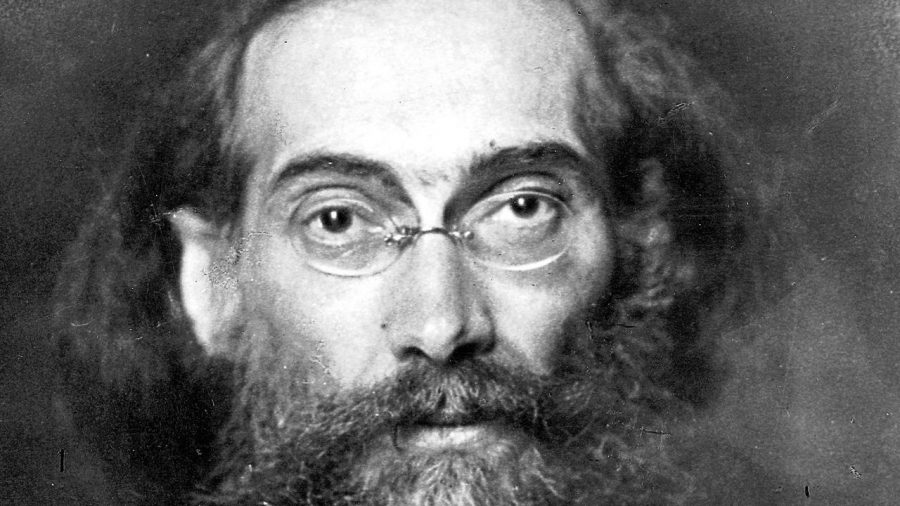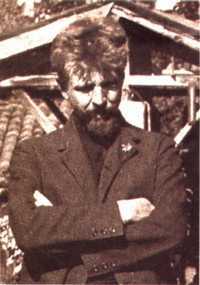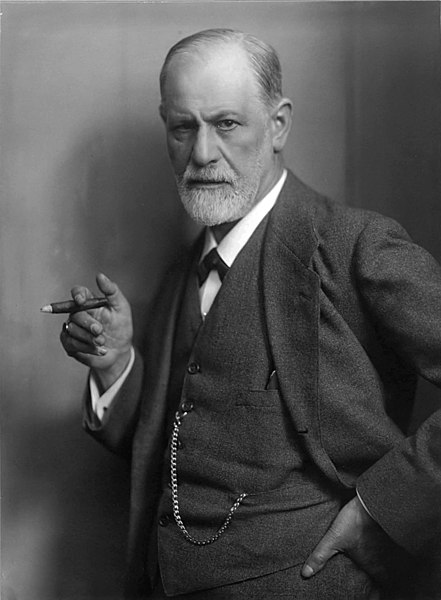
We badly need a massive wave of refusal and resistance to halt the tyranny of the Great Reset.
We need resistance so determined, so dogged, so uncompromising, that the sword of repression shatters on its strength and the technocrats see their authority and control crumble into nothingness.
What we need, in truth, is a revolution, but a revolution that leads in exactly the opposite direction to the Fourth Industrial Revolution proposed by Klaus Schwab, Marc Benioff, Ronald Cohen and the rest of that global mafia.
Our revolution will see the resurgence of natural human communities guided by age-old wisdom and rooted in old-fashioned values such as truth, honesty, decency, fairness, mutual aid and freedom.
Anarchists should be at the forefront of pushing for this revolution, especially at this key moment of crisis. It is what we are there for, what we have been talking and writing about for years!
But sadly, as I have repeatedly pointed out, the movement in most places seems to have effectively been neutralised.
Having been increasingly contaminated and weakened by Marxoid industrialism, by self-righteous liberalism and by the nature-hating cult of artifice, its reaction to the Covid Coup was flaccid, to say the least.
So how will this revolution come about? Who exactly is going to be leading the charge and manning the barricades?

The voice of Gustav Landauer reaches out from 100 years ago to tell us not to worry. “There is no need to fear a lack of revolutionaries: they actually arise by a sort of spontaneous generation – namely when the revolution comes,” he says.
“The voice of the spirit is the trumpet that will sound again and again and again, as long as men are together. Injustice will always seek to perpetuate itself; and always as long as men are truly alive, revolt against it will break out”. (1)
Some clues as to how this spontaneous generation could take place are provided by another early 20th century anarchist, Otto Gross, whose profile on the Organic Radicals website has just been greatly expanded.
Gross argued that each of us has an inborn nature, which includes an innate sense of justice, of right and wrong.
However, right from our birth we are subject to authority – from family, school and society – and put under pressure to stifle our own natural being, for fear of being rejected by those around us.
He wrote: “The fear of loneliness, the drive for contact, forces the child to adapt: the suggestions from foreign will that one calls education are incorporated into one’s own will. And so the majority consist almost solely of foreign will that they have incorporated, of the foreign type to which they have adapted, of the foreign being that appears to them completely to be their own personality.

“They have by nature become by and large uniform because the foreign will of all, of which they consist in reality, is, in its deepest nature and ultimate goals, uniformly directed. They have spared themselves an inner divisiveness; they have adapted to things as they are. They are the majority”. (2)
At the same time, said Gross, there were others who never completely repressed their own nature in the “vicious circle of adapting to others” (3) and were thus condemned, in our society, to a lifetime of inner conflict as they tried to understand and cope with what they were experiencing.
He turned on its head the usual assumption that those who did not adapt to the society around them were suffering from some kind of mental disturbance.
Instead, it was the conformist majority who were failing to live in the way that human beings were intended to live, he argued.
“If we take as our norm, the highest unfolding of all inborn human potentialities, and if we know intuitively and from experience that the existing social order makes it impossible to achieve the highest possible development of the individual and of humanity, then we shall recognise satisfation with present conditions as below par”. (4)
The non-conforming individuals, “in whom an inherent, species-specific nature and its basic instincts are able to remain effective”, (5) were only few in number, he said, and should in fact be regarded as “the healthy ones, the fighters”. (6)
They were infused with “the revolutionary instinct of humankind” which “refuses to adapt to that which is inferior”. (7)
This analysis sheds much light on what we have been witnessing since the start of the Covid Coup. Those individuals who have been mentally strong enough to resist mass indoctrination have not come from any particular political, cultural or religious background.
Neither are they necessarily people who pride themselves on being better “educated” than others. Indeed, Gross singled out educational conditioning as being one of the main ways in which people were separated from their natural way of thinking, and those overly influenced by sources from outside their own inner feeling and judgement are obviously at greater risk of falling prey to manipulation.

Gross was dismayed by the limited scope and ambition of thinking that should, theoretically, be challenging the dominant system.
Initially a great admirer of Sigmund Freud’s work, he became disillusioned by the way the founder of psychoanalysis, and his followers, backed away from the political implications of their work and so could not reach the crucial stage where “all traditional authority is put in question and the existential basis is shattered of those who feel at home and safe in the authority of the existing order”. (8)
He also regretted that revolutionary movements had never managed to tackle the root cause of society’s ills and ended up simply replicating the same structures.
He wrote in 1913: “None of the revolutions belonging to history have been successful in setting up the freedom of the individual. They vanished without effect, always as forerunners of a new bourgeoisie; they ended up in a hasty wanting to align oneself in generally acknowledged normal states. They collapsed because the revolutionary of yesteryear was instilled with authority”. (9)
For him, therefore, a true revolution had to incorporate the insights he had gained from his psychoanalytical work. His “vocation” was “to free the essential personal style of the individual from all that is alien, destructive, contradictory”. (10)
Revolution had to aim at nothing less than freeing the innate human spirit from the cage of conformism placed around it by authoritarian society.
“The psychology of the unconscious is the philosophy of the revolution… It is called upon to inwardly create capacity for freedom, invoked as the groundwork of revolution”, Gross argued. (11)
“Once it is shown that repressing the values of one’s own nature means sacrificing the highest human potential, a demand for revolution as the result of the psychology of the unconscious becomes absolute”. (12).
This was a mighty cultural challenge, he explained, which would require “an absolutely irreconcilable opposition to all things and individuals recognized today as authority and institution”. (13)
In common with other thinkers who inspire the organic radical philosophy, Gross regarded humankind as having been on the wrong path for many centuries. The harm that had been done needed to be undone before a decent way of living, based on unblocked human nature, could be restored.
He wrote, a year before he died at the tragically young age of 43: “The furthest-projected goal ultimately of the future can only be the undoing of an error of humanity, only the recapturing of a goodness and of a niveau lost an unimaginably long time ago, only the redemption of inherited guilt and its damning effects.
The freedom, and thus health, of any community depends on the freedom of the individuals who make it up
“No really new creation, but merely, as the highest that can be attained, a full recognition of the complete error, primordially, in everything – a backward-reaching revaluing of all values, a will to the reconstruction of the primordial basis for relationships, society, and to the development of culture which may then begin”. (14)
The freedom, and thus health, of any community depends on the freedom of the individuals who make it up.
A society in which too many have repressed their inner nature is no longer a healthy living social organism, but instead has become clogged up and diseased.

As I wrote some years ago: “Some human beings and their activities are acting as antigens, threatening the health of our species and our planetary superorganism. Other humans, in whom a sense of individual freedom is combined with a responsibility for the well-being of the whole, must therefore take on the role of antibodies”. (15)
I always imagined that these social antibodies would be found among the ranks of anarchists, since anarchism, is after all, the only political philosophy which calls for humankind to free itself from the chains of all authority.
But in the last year or so, I have come to realise that this is not necessarily the case. For one thing, the contemporary anarchist movement is unfortunately so compromised and ideologically degraded that it does not encourage such antibodies to emerge and see off social disease – instead it actually prevents them from doing so.
Secondly, and more positively, it has become clear that there are tens of thousands of natural antibodies – “the healthy ones, the fighters” in Gross’s terms – out there in society as a whole, aligned to all kinds of political positions and none, who are courageously stepping forward at this moment of immense danger to us all.
It is now clear to me that this is where hope lies. This is how our social organism is going to see off the Great Fascist Reset. This is what Landauer’s “spontaneous generation” of revolutionaries actually looks like.
It doesn’t matter if today’s rebels don’t call themselves anarchists or if they don’t agree on everything amongst themselves or with the likes of me.
“Anarchism” was only ever just a temporary political form taken by a much deeper and much older phenomenon – our timeless desire for life and freedom.
If anarchism, or any other political belief-system, ossifies to the point where it blocks that desire then it will simply be swept away by the tidal wave of authentic human vitality surging up to restore our natural happiness.

1. Gustav Landauer, For Socialism, trans. by David J Parent, (St Louis: Telos Press, 1978), p. 82 & p. 130.
2. Otto Gross, ‘On the Symbolism of Destruction’, 1913, Selected Works 1901-1920, trans. by Lois L. Madison (New York: Mindpiece, 2012), p. 266.
3. Otto Gross, ‘Situation des intellectuels’, Psychanalyse et Révolution: Essais, trans. by Jeanne Étoré (Paris: Éditions du Sandre, 2011), pp. 145-46.
4. Otto Gross, ‘Der Fall Otto Gross’, 1914, Von geschlechticher Not zur sozialen Katastrophe (Hamburg: Nautilus, 2000), pp. 75-76, cit. Gottfried M. Heuer, Freud’s ‘Outstanding’ Colleague/Jung’s ‘Twin Brother’: The suppressed psychoanalytic and political significance of Otto Gross (London & New York: Routledge, 2017), p. 36.
5. Gross, ‘On the Symbolism of Destruction’, Selected Works, p. 267.
6. Otto Gross, ‘On Overcoming the Cultural Crisis’, 1913, Selected Works, pp. 259.
7. Gross, ‘Situation des intellectuels’, Psychanalyse et Révolution, p. 147.
8. Otto Gross, ‘Protest and Morality in the Unconscious’, 1919, Selected Works, pp. 281-82.
9. Gross, ‘On Overcoming the Cultural Crisis’, Selected Works, p. 259.
10. Otto Gross, Letter to Else Jaffé, 1907-08, Otto Gross Archive, London, cit. Heuer, p. 87.
11. Gross, ‘On Overcoming the Cultural Crisis’, Selected Works, p. 257.
12. Gross, ‘Protest and Morality in the Unconscious’, Selected Works, p. 281.
13. Gross, ‘Protest and Morality in the Unconscious’, Selected Works, p. 284.
14. Otto Gross, ‘The Basic Concept of Communism in Paradisical Symbolism’, 1919, Selected Works, p. 279.
15. Paul Cudenec, Antibodies, anarchangels and other essays (Sussex: Winter Oak, 2013), pp. 43-44.
Leave a Reply